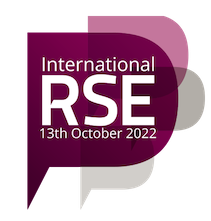What does the role of Research Technology Professional mean to King’s Digital Lab?


This is the fourth part of a blogpost published for International Research Software Engineering Day integrating and extracting from our response to the Arts and Humanities Research Council (AHRC) consultation this summer on what the role of Research Technology Professional (RTP) means to King’s Digital Lab. Research Software Engineering profiles are a category within RTPs so our response was based on the KDL experience of inhabiting those roles.
Part 4
This is last part in the series (Part 1: "Who are Research Technology Professionals?"; Part 2: "People, projects, infrastructure, methodologies and processes"; Part 3: "Visibility, recognition, career development, sustainability and training"). There is no need to be read in sequence but it might be useful for context.
Last but not least, the final point of the AHRC consultation (Equality Diversity and Inclusion issues) is the one that allows us to subsume several aspects of Research Technology Professionals (RTPs) roles in Arts and Humanities (A&H) research and how we see them changing and becoming professionalised in a healthy and inclusive environment:
Diversity of expertise and roles
A more inclusive definition of RTPs would account for a diversity of skillsets (e.g. software design, analysis and maintenance, project management, research facility management, data modelling, research data management, systems management, requirements elicitation) as well as role profiles. A holistic understanding of what aspects of the research lifecycle RTPs contribute to supports this inclusive definition which, when translated into appropriate role profiles and job descriptions, would aim to attract a more diverse pool of talents across expertise, gender, and ethnicities.
A&H values and ethos
The same holistic understanding supports the claim that an integral digital research agenda informed by A&H values and ethos needs RTPs expertise in alignment with UKRI draft strategy to address global challenges and complex issues entangled with the design and use of technologies (e.g. accessibility, data sovereignty, data ethics, responsible AI, engagement with indigenous communities). Offering funding schemes (possibly in collaboration with European and other international funders) that would cover also contributions from local RTPs distributed across the globe would be beneficial.
Fair labour and wellbeing
Professionalizing RTPs with well-resourced stable teams supported by permanent or long-term contracts and adequate governance structure would guarantee that fair labour conditions as well as wellbeing remain at the forefront of concerns to make RTPs career attractive and sustainable. Many HR policies (e.g. on flexible and hybrid working) that would ensure RTPs careers are attractive also for those with disabilities, health issues, parenting or caring responsibilities exist but might not be applied equitably to RTPs. This can be due to issues such as under-resourced teams, increasing monitoring demands on critical services, reliance on short term fixed-term contracts associated to single projects funding or indeed simply inadequate governance and management structures. Other HR policies adequate to RTPs careers (e.g. pathways, promotions) are in need to be developed – what outlined under career development in part 3 of the series would contribute to bring about those institutional changes.
I would like to thank the AHRC for the opportunity to contribute to this consultation and hope the blogpost will be useful to a wider cohort of readers curious to understand and critique what RTPs in A&H can be or interested in seeing these roles evolve and thrive.
